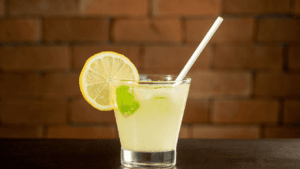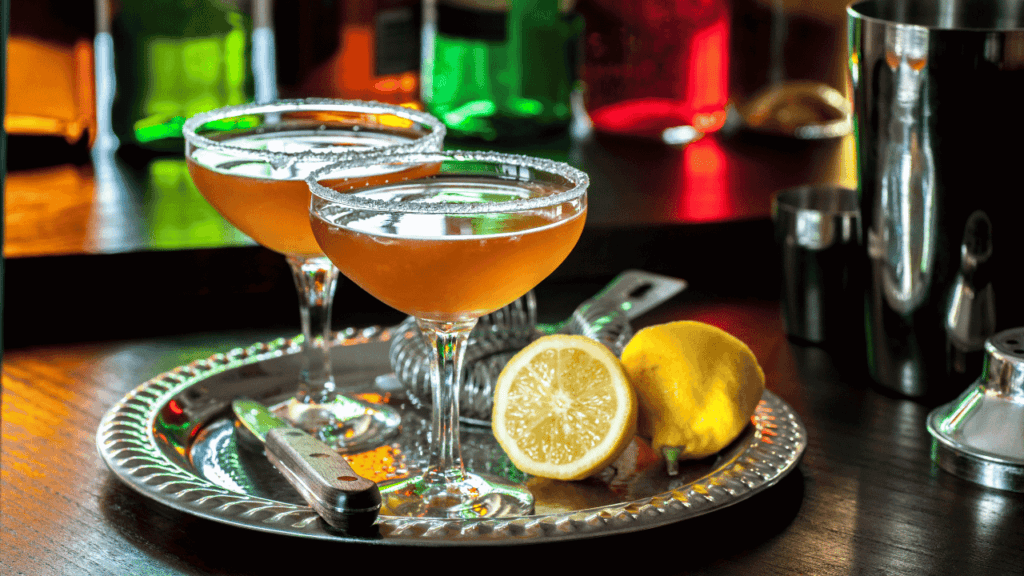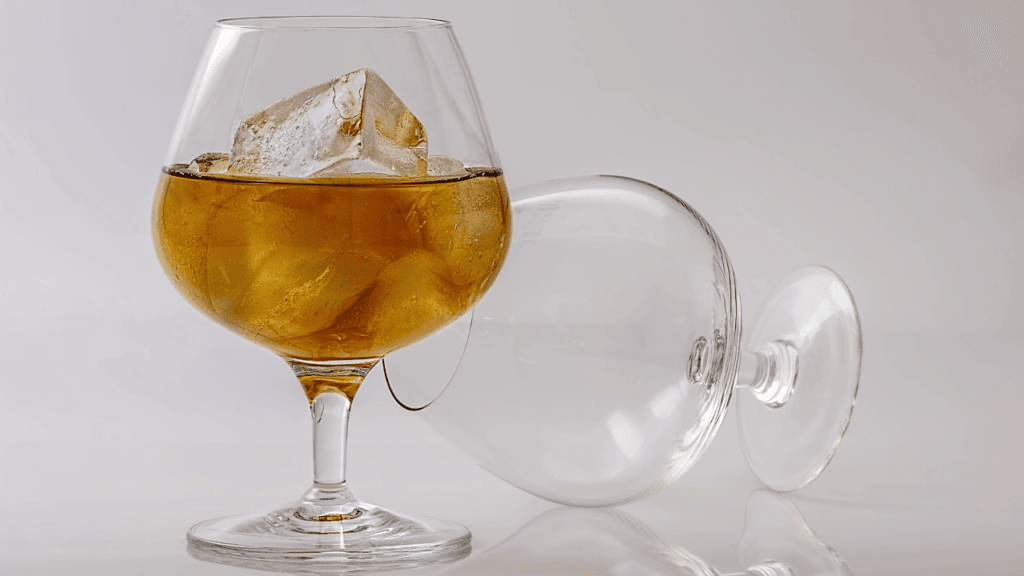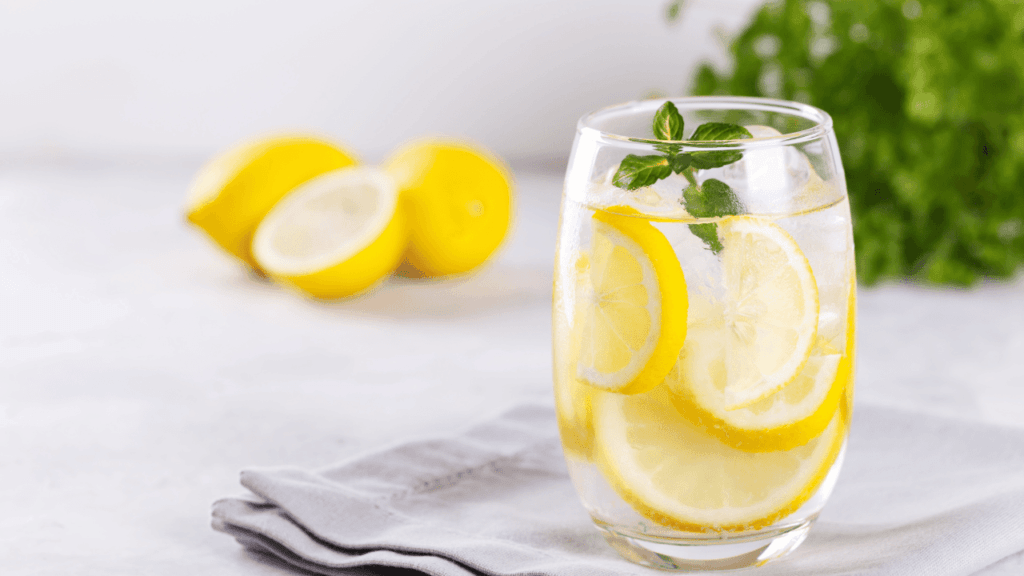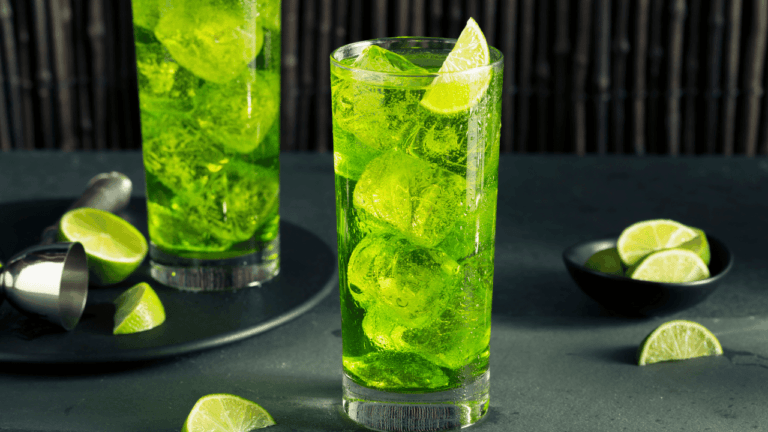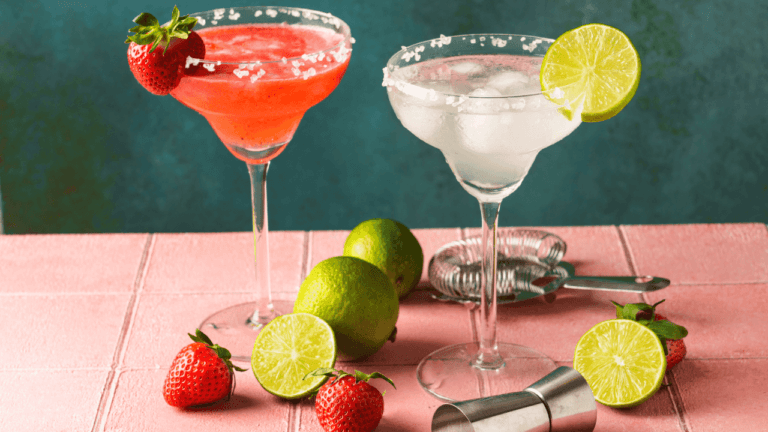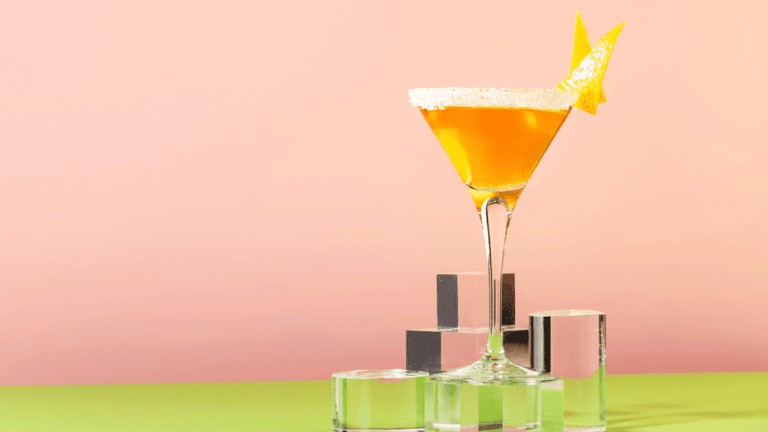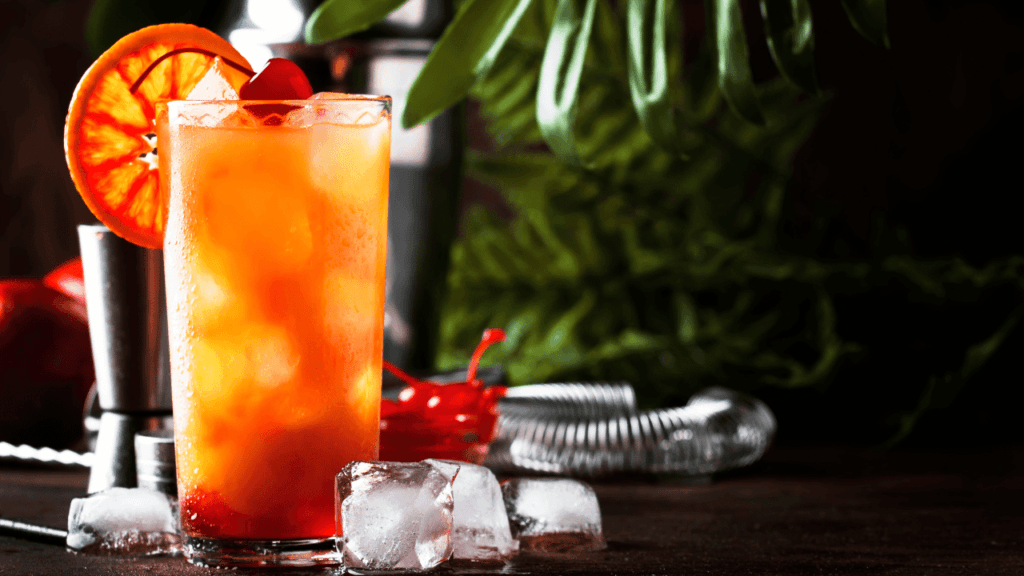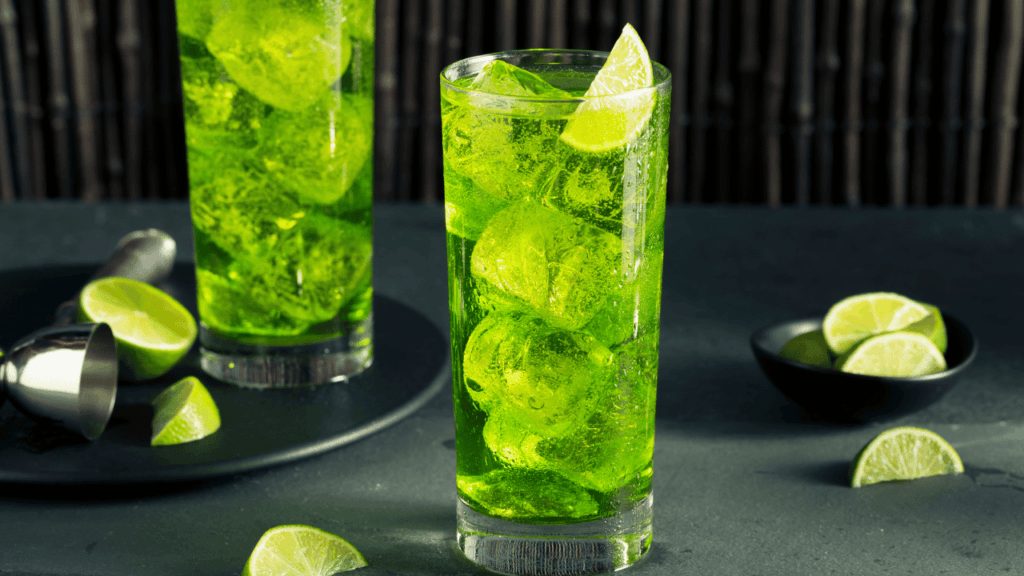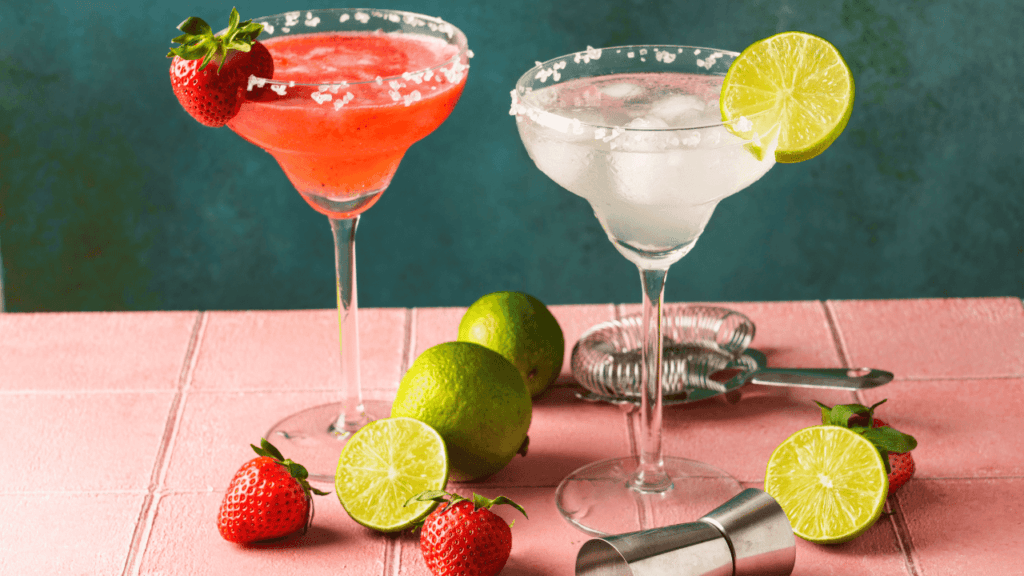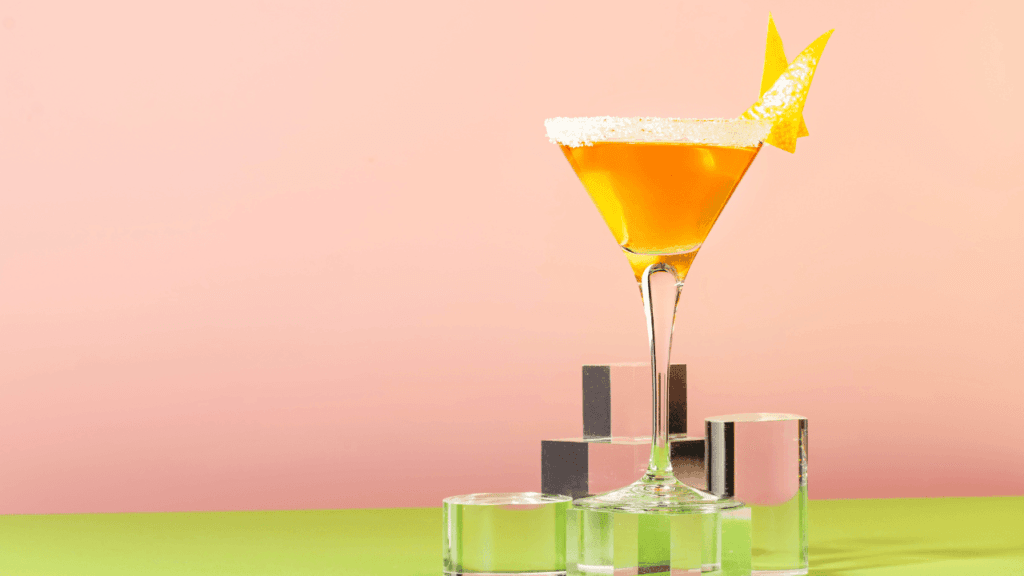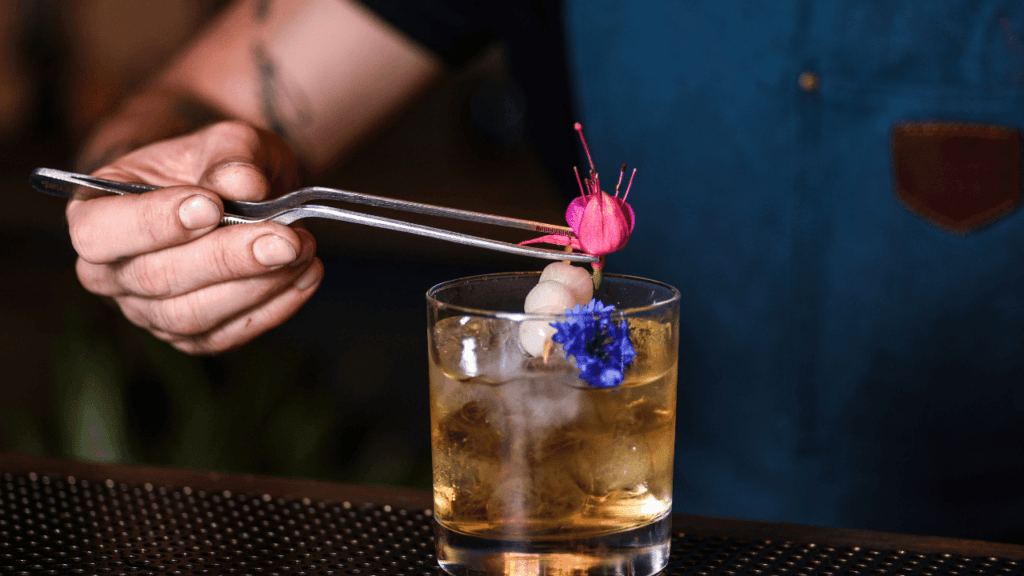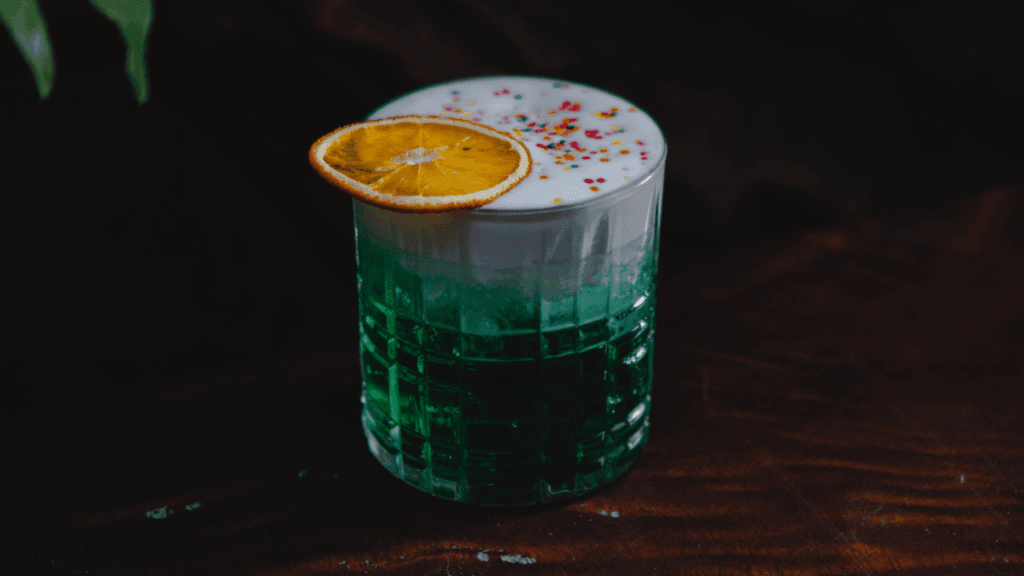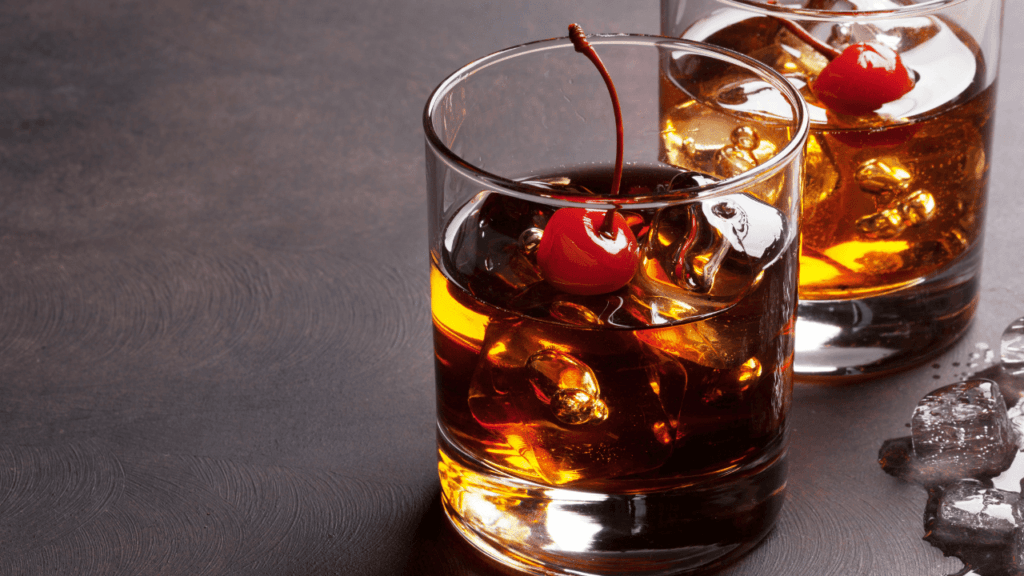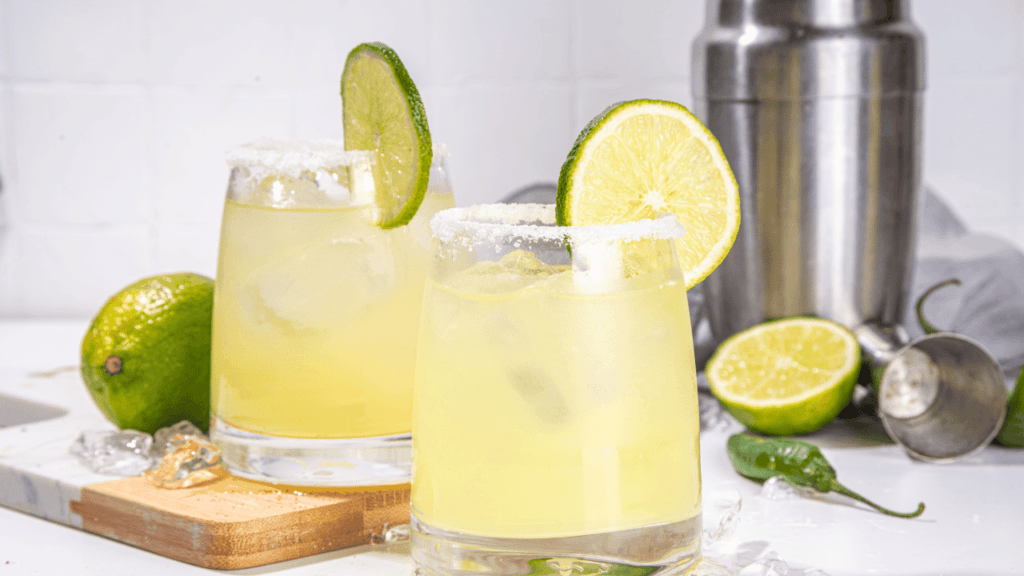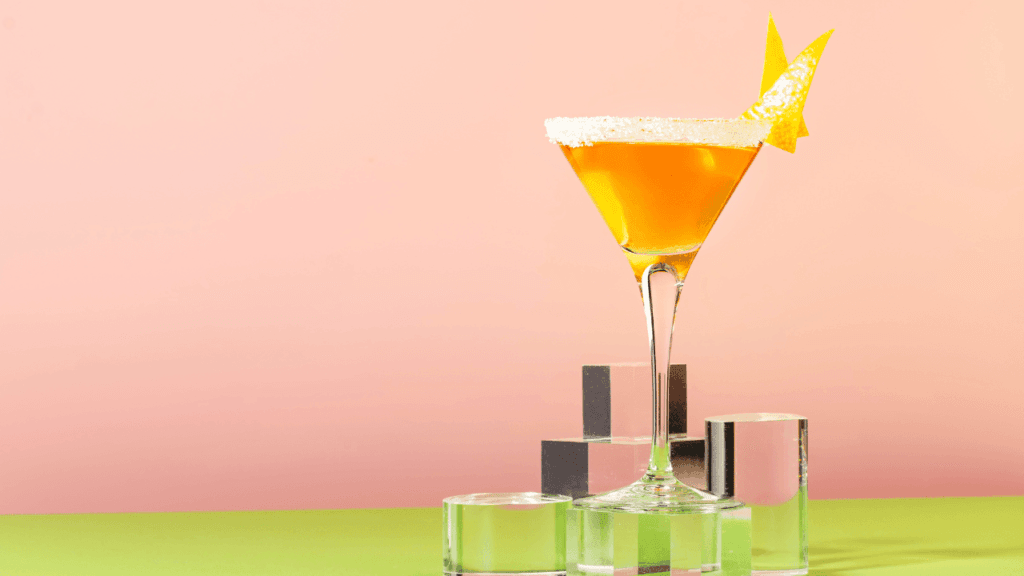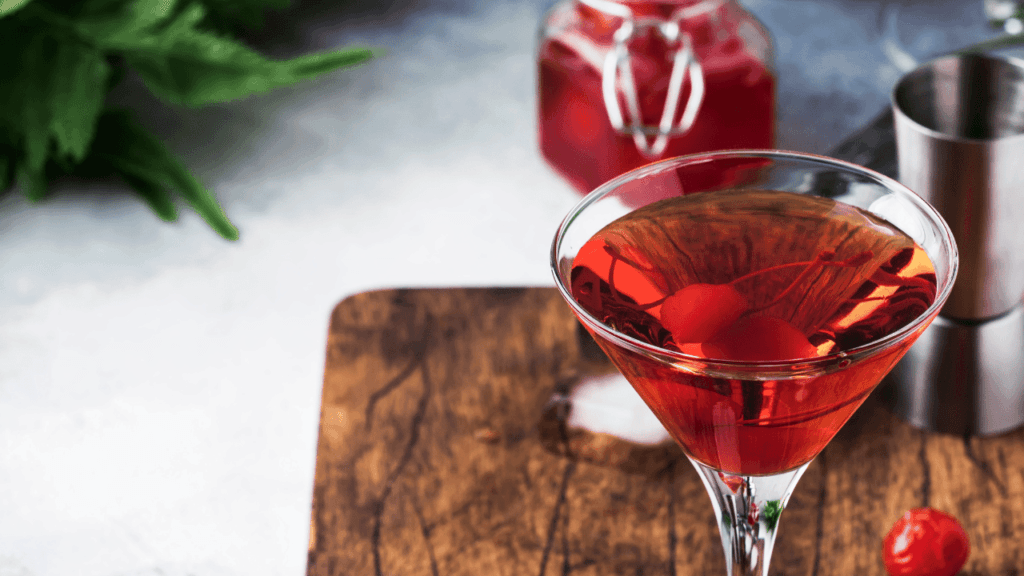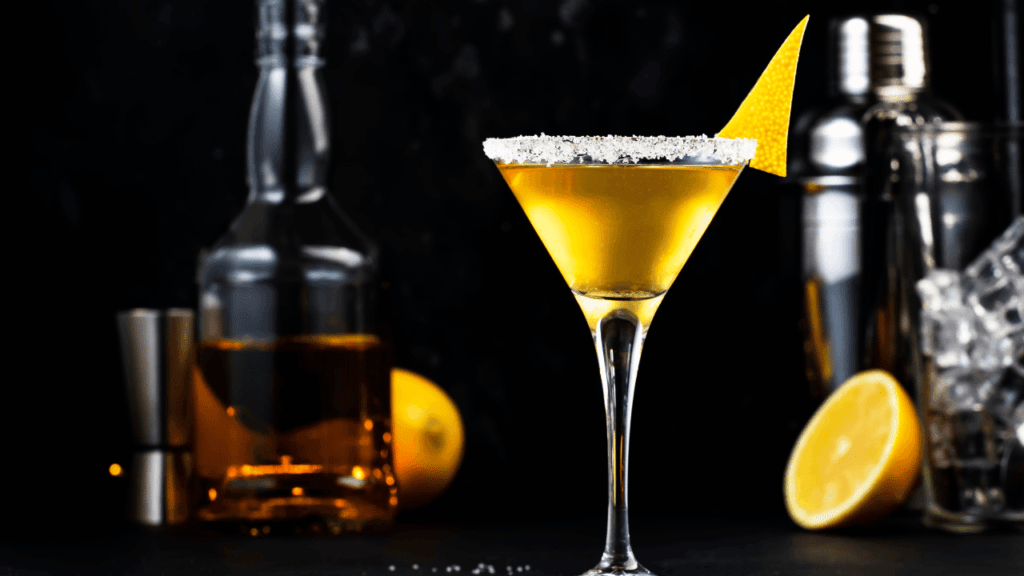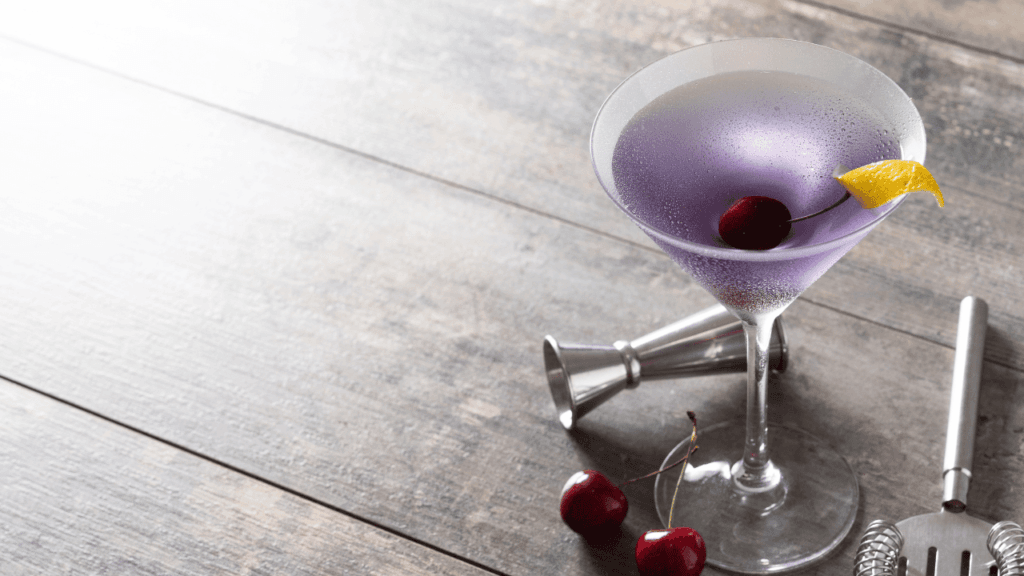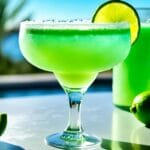Mastering the Classic Sidecar Cocktail Recipe is a fun to-do, no matter your level. For cocktail fans or experts, knowing how to craft this drink is key. Every part of the process, from the drink’s history to the choice of ingredients, plays a role.
A sidecar mix has 2 parts brandy or similar, 1 part triple sec, and 3/4 part lemon juice. Picking the best cognac and using fresh lemon juice makes a great drink. A tip: one lemon usually gives enough juice for two drinks. But some like using Cointreau with the lemon juice.
A standard sidecar cocktail has about 26% alcohol. This makes it a strong, flavorful choice. This classic has inspired similar drinks like the Boston sidecar and Between the Sheets. Trying out different ingredients, like Spanish brandy or pisco, adds to its long history.
The sidecar was first mixed up in Paris and London’s Buck’s Club during WWI. Top mixologists suggest brands like Hennessy or Rémy Martin for the best taste. They say to chill it lots, get the sweet and sour balance right, and keep a recipe log. This cocktail is all about those small, perfect touches.
The core recipe is 2 parts Cognac, 1 part Cointreau, and 1 part lemon juice. Grades of Cognac like VS or XO make for an interesting choice. Classic sidecars love garnishes like lemon twists. And don’t forget to sugar the glass rim for extra style.
Key Takeaways
- A Classic Sidecar Cocktail Recipe typically utilizes cognac, orange liqueur, and fresh lemon juice.
- The balance between sweet and sour ingredients is crucial for the cocktail’s flavor profile.
- Using fresh lemon juice is essential for achieving the right taste and crispness.
- Premium brands of cognac, such as Hennessy and Rémy Martin, are recommended for crafting a classic sidecar.
- Techniques like serving the sidecar cold and rimming the glass with sugar enhance the drinking experience.
- Different variations of the sidecar use alternative base liquors or additional flavors for personalized twists.
Introduction to the Sidecar Cocktail
The Sidecar cocktail is a mix that keeps people excited. It was born in the early 1900s, bringing together old-school spirits in a fresh way.
It mixes brandy with orange liqueur and lemon juice. The best sidecar cocktail recipe includes brandy, Cointreau, and lemon juice. This blend makes for a cocktail that’s both bold and lively.
This drink is strong, with about 26% alcohol. The original recipe called for cognac. But, today you might find recipes with bourbon. This shows how the drink has evolved over time. There are fun versions like the blackberry sidecar and the épicé sidecar. With flavors like jalapeño syrup, these new takes add a twist to the classic drink.
People are encouraged to try different brandies and orange liquors. This includes top picks like Cointreau. This mix allows everyone to create their ideal sidecar. No matter how you make it, this drink looks great and tastes even better.
History of the Sidecar Cocktail
The story of the sidecar cocktail is fascinating. It’s said to have started in either Paris or London during World War I. Yet, its precise origin remains a mystery. What we do know is that it soon became a beloved classic in the world of cocktails.
Origins in Paris and London
The birth of the Sidecar cocktail is a point of contention. Was it Pat MacGarry of Buck’s Club in London, or Harry MacElhone of Paris’ Harry’s New York Bar? Being born around World War I, it captured the essence of both cities’ cultures.
Significance in the 1920s
The 1920s marked a special time for cocktails, and the Sidecar shined. Featuring cognac, Cointreau, and lemon juice, this recipe was a hit. It embodied the glamour of the 1920s perfectly, becoming a symbol of that cultured era.
Over time, recipes for the sidecar cocktail have evolved. David A. Embury preferred a 2:1:1 mix. Harry Craddock, on the other hand, suggested using brandy, Cointreau, and lemon juice in equal parts. Even with these variations, the spirit of the sidecar remains undiminished.
Classic Sidecar Cocktail Recipe
The classic sidecar cocktail recipe is loved for its easy steps and the perfect mix of flavors. You’ll need 2 ounces of brandy, cognac, or bourbon. Mix that with 1 ounce of triple sec and 3/4 ounce of lemon juice. Together, they make a cocktail that’s both strong and smooth.
Lemon juice must be fresh for the right taste. Using one lemon gives you enough juice for two drinks. Using fresh lemons makes the classic sidecar cocktail recipe stand out.
This drink is best in a cold martini glass with a sugared edge. The sugar makes the drink sweeter and balanced. It’s not just for looks; it adds to the experience.
The sidecar is a strong drink, about 26% alcohol. But because it’s well-balanced, it tastes smooth. You can also try it with Cointreau and more sugar if you like.
The classic sidecar cocktail recipe has inspired many others. There’s the Boston sidecar and more. They all show how versatile and timeless the original recipe is.
| Ingredient | Amount |
|---|---|
| Brandy, Cognac, Armagnac, or Bourbon | 2 ounces |
| Premium Triple Sec | 1 ounce |
| Freshly Squeezed Lemon Juice | 3/4 ounce |
Choosing the Right Cognac
Choosing the right cognac is key to a great Sidecar cocktail. The right one makes the drink more interesting and tasty. While a VSOP is a good choice because it’s well-balanced and has aged well, you might find another brandy you like just as much.
VSOP Cognac Recommendations
In a Sidecar, many think a VSOP is best. VSOP means it’s Very Superior Old Pale and has aged at least four years. It mixes well with the cocktail, making the taste just right. Here are some that really stand out:
- Hennessy VSOP: It’s smooth and well-balanced. Hennessy goes great with the lemon and orange in a Sidecar.
- Pierre Ferrand Ambre: This brandy has hints of flowers and vanilla. It adds elegance to the cocktail.
- Rémy Martin VSOP: Known for its rich taste, it mixes perfectly with the citrus of a Sidecar.
Other Quality Brandy Options
If you’re up for something different, try a quality brandy in your Sidecar. They add unique flavors and can suit many tastes. Here are some good picks:
- Armagnac: A deep and characterful choice from Gascony. It brings something special to the cocktail.
- Germain-Robin: From California, this brandy is fruity and complex, offering a fresh take on the Sidecar.
- Courvoisier VS: At the entry level, it’s youthful and bright, ensuring a fun cocktail experience.
| Brand | Grade | Tasting Notes |
|---|---|---|
| Hennessy | VSOP | Smooth, well-rounded, hints of vanilla and toast |
| Pierre Ferrand | Ambre | Floral, subtle vanilla, delicate |
| Rémy Martin | VSOP | Rich, complex, fruity and spicy notes |
| Armagnac | Various | Deep, robust, slight woody undertones |
| Germain-Robin | Various | Fruity, modern, complex |
| Courvoisier | VS | Youthful, vibrant, fresh fruit flavors |
Importance of Fresh Lemon Juice
Learning how to make a sidecar cocktail shows fresh lemon juice is key. It adds a tangy, bright taste. This kick is essential for the perfect drink. A true sidecar uses 3/4 ounce of lemon juice to get its special flavor.
A sidecar mixes 2 ounces of brandy or bourbon, with 1 ounce of triple sec, and that lemon juice. It’s about 26% alcohol. This mix of sweet and sour is just right.
- Fresh Lemon Juice: 3/4 ounce
- Brandy, Cognac, Armagnac, or Bourbon: 2 ounces
- Premium Triple Sec: 1 ounce
The sidecar cocktail has many forms. It changes by using different alcohols and how much lemon and syrups you add. From the pisco sidecar to the balalaika with vodka, using fresh lemon keeps it interesting.
Lemon juice balances the strong taste of cognac and sweet orange flavors. It makes the drink sharp and enjoyable for everyone trying to make a good sidecar cocktail.
Here is a detailed look at the key ingredients involved:
| Ingredient | Quantity |
|---|---|
| Brandy, Cognac, Armagnac, or Bourbon | 2 ounces |
| Premium Triple Sec | 1 ounce |
| Fresh Lemon Juice | 3/4 ounce |
Best Orange Liqueur for a Sidecar
Choosing the right orange liqueur is very important for a great Sidecar cocktail. Many prefer Cointreau for its top-notch quality and perfect mix of sweet and dry. It’s a favorite choice. But, you can use Triple Sec or other premium orange liqueurs to change the taste to your liking.
Cointreau vs Triple Sec
Cointreau is seen as the best for a Sidecar, with 66.67% of people enjoying its taste the most. It mixes well with its bitter and sweet orange peel flavors. This makes the cocktail more sophisticated. Yet, Triple Sec is a good choice too. It can make a tasty drink for less cost. But, it might not have as many layers of flavor as Cointreau.
Other Premium Options
Looking for something else? How about Grand Marnier or Pierre Ferrand Dry Curaçao. Grand Marnier can make the cocktail taste more full and complex due to its Cognac base. It’s like a richer Margarita for 33.33% of people. Pierre Ferrand offers a different but excellent choice. It’s known for mixing sweet and bitter orange flavors well. You can get creative with these choices for a Sidecar that matches your taste.
| Orange Liqueur | Flavor Profile | Preferred by Tasters (%) |
|---|---|---|
| Cointreau | Balanced, Complex | 66.67 |
| Grand Marnier | Rich, Full-bodied | 33.33 |
| Triple Sec | Sweeter, Simpler | N/A |
Choosing a premium orange liqueur really changes your Sidecar experience. While Cointreau is popular, trying other quality choices can surprise you. They offer new flavors that can make this classic cocktail even better.
Step-by-Step Guide to Making a Sidecar
Making the perfect Sidecar cocktail is simple but detailed. Use this step-by-step sidecar cocktail guide to become a pro at mixing this timeless drink.
Prepare the glass: Begin by chilling your cocktail glass in the freezer for 5 minutes. After it’s cold enough, rim the glass with superfine sugar. This style, used since the 1930s, brings a nice sweet touch to the drink’s sourness.
Combine ingredients: Take a cocktail shaker and put in 2 ounces of VSOP Cognac. Choose from brands like Hennessy, Martell, Rémy Martin, or Courvoisier. Add 1 ounce of Cointreau, a well-loved triple sec known for its mix of bitter and sweet. Finish by adding fresh lemon juice, about 3/4 ounce per cocktail. A standard lemon gives enough juice for two drinks, or 1 3/4 ounces.
Shaken, not stirred: Drop in some ice and shake the mix hard for 30 seconds. Shaking well is key to blending the flavors and getting a perfectly chilled drink.
Strain and serve: Pour the mix into the glass you prepped with sugar on the rim.
In no time, you’ve made a classic Sidecar. It’s a perfect mix of strong cognac, tangy lemon, and the sweet touch of orange liqueur. Feel the history in every sip of this drink, which dates back to the Paris cafes of World War I. It’s easy to see why the Sidecar is still a favorite in bars worldwide.
Sugar Rim and Garnish Tips
Adding the right sugar rim and garnish to your Sidecar cocktail turns it into an art piece. They make the drink look great. And they give it a taste boost, balancing out its sharp flavors.
How to Rim a Glass with Sugar
Knowing the sugar rim technique well is key to perfecting your Sidecar. Start by running a citrus slice around the glass’s rim. Then, dip it in fine sugar, making sure it’s all coated. This trick not only makes your cocktail pretty. It also combines well with the lemon juice’s sharpness and the brandy’s warmth.
Best Garnishes for a Sidecar
The right garnish can take your Sidecar to a whole new level. A twist of lemon or orange peel is classic. They boost the drink’s citrus flavors. Twisting the peel over your cocktail adds a lovely smell and taste.
For a more interesting drink, try pairing a sugared rim with an orange twist. It brings together sweetness and a bright taste. In the end, using the proper sugar rim technique and garnish pick, like a citrus twist, makes your Sidecar a joy both to see and sip.
Perfecting the Balance
To perfect the sidecar, knowing the right mix of ingredients is key. The classic sidecar tastes just right with brandy, orange liqueur, and lemon juice. Tip: Use 2 parts brandy, 1 Cointreau, and 3/4 fresh lemon juice but change it to make it yours.
Tweaking Ingredients to Taste
If you want to tweak your drink, start with the citrus and liqueur mix. More lemon means it’s tart; less means it’s not. Adding more orange liqueur makes it sweeter. You can also add simple syrup to make it sweeter or a bit sour.
Common Adjustments and Variations
There are many ways to change the sidecar, opening up a new taste world. Try it with different brandy or premium brands. You might also like swapping brandy for bourbon or trying homemade orange liquor. Don’t forget new flavors like the Boston or Épicé sidecar. They keep the classic style but add unique tastes.
- Boston sidecar: Features a split base of brandy and rum.
- Chelsea sidecar: Uses gin instead of brandy for a botanical twist.
- Between the Sheets: Includes light rum along with brandy and triple sec.
- Balalaika: Substitutes vodka for a cleaner taste.
- Blackberry Sidecar: Infused with blackberry liqueur for a fruity variant.
- Épicé Sidecar: Enhanced with jalapeño syrup for a spicy kick.
| Variation | Key Adjustments | Flavor Profile |
|---|---|---|
| Boston Sidecar | Mix of brandy and rum | Rich, complex |
| Chelsea Sidecar | Uses gin | Botanical, fresh |
| Between the Sheets | Adds light rum | Layered, smooth |
| Balalaika | Vodka substitute | Clean, crisp |
| Blackberry Sidecar | Blackberry liqueur | Fruity, sweet |
| Épicé Sidecar | Jalapeño syrup | Spicy, bold |
Take notes when changing the drink. It will help you make your perfect sidecar. Enjoy the process of tweaking the recipe to get it just right for you.
Popular Variations of the Sidecar Cocktail
The classic sidecar recipe is the base for many great variations of the sidecar cocktail. These new versions keep its essential taste but add a unique twist.
| Variation | Ingredients |
|---|---|
| Original Sidecar |
|
| Sidecarmalade |
|
| Amaretto Sidecar |
|
| Bourbon Sidecar |
|
| Boston Sidecar |
|
| Tahona Sidecar |
|
Each sidecar cocktail variation shows how versatile and timeless the drink is. By changing the alcohol or adding something new, you can make exciting versions. Trying out these changes can lead to amazing new takes on the classic cocktail.
Conclusion
The Classic Sidecar Cocktail Recipe is a true classic, keeping its charm across generations. Its mix of brandy, orange liqueur, and lemon juice creates a blend of sweet, sour, and strong that enchants us. This simple drink is far from boring – it’s a masterclass in taste.
There are many versions of the Sidecar, like those made with Bourbon or Whiskey. But, the heart of the drink stays the same: great spirits and freshly squeezed lemons. By chilling the glass, every sip stays as cool and refreshing as the last.
The Sidecar isn’t just a cocktail; it’s a launchpad for creativity. You can swap out the brandy for Bourbon, Rye, or Rum, and the lemons for other citrus fruits. With each new twist, the classic recipe stands strong. It proves a timeless choice for those who love well-crafted drinks.

